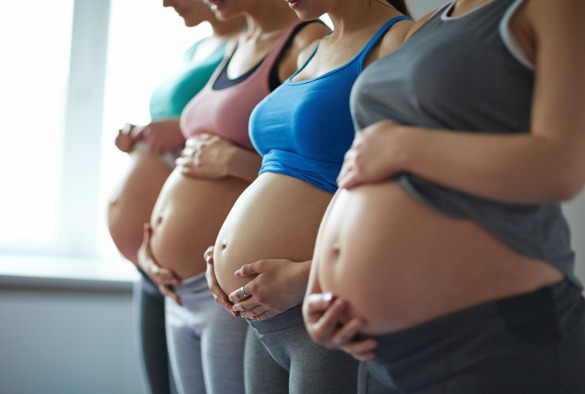
A new University of Liverpool-led study, published in BJOG: An International Journal of Obstetrics & Gynaecology, has revealed that many women who experience a traumatic birth risk developing PTSD, but self-help strategies without professional support are insufficient and should not be routinely introduced.
Post-traumatic stress disorder (PTSD) after childbirth is a major cause of psychological distress, with 3% of women suffering at full diagnostic levels and 5-9% when sub-diagnostic levels (partial PTSD) are included.
About a third of women experience childbirth as traumatic. This means they have experienced high fear of death or damage to themselves or their baby during or shortly after childbirth. When this is the case they can be at risk of developing PTSD. PTSD symptoms include re-experiencing parts of the labour or birth as if back there, nightmares or having intrusive thoughts or images about what happened. Women may also find it difficult to talk about the events without fear or distress, feel generally 'on edge' and irritable and as if the world has become a threatening place
PTSD is very debilitating and without intervention tends to become chronic. As well as the distress for the woman, PTSD can adversely impact the child's cognitive, emotional and social development. Prevention where possible is therefore crucial.
Self-help materials
The Stress and Wellbeing After Childbirth (STRAWB2) self-help materials (a leaflet and film) were designed to prevent the development of PTSD. Experts by experience guided development to ensure accessibility, and materials were piloted in a feasibility study. The materials derive from evidence-based psychological theory about how we can prevent exposure to a trauma leading to PTSD.
To test if providing these type of psychological self-help materials would significantly lower the incidence of PTSD at 6-12 weeks postnatally researchers, led by Professor Pauline Slade, conducted a study to measure their impact.
In collaboration with midwifery services in Lancashire Teaching Hospitals NHS Foundation Trust and Liverpool Women's Hospital Foundation Trust midwives screened over 2,400 women receiving usual NHS postnatal care for traumatic birth experience.
678 women who screened positive (28.1%) were randomly allocated to self-help with usual care or usual care alone. Self-help materials, were a leaflet and on-line film designed to prevent the development of PTSD after trauma exposure through how to manage early psychological responses.
At 6-12 weeks postnatally 478 of the 678 women (70.5%) were followed up and interviewed using the gold standard Clinician Administered PTSD Interview (CAPS-5) to see if they had developed PTSD.
The researchers found that there was no difference between groups who received self-help or usual care alone. The study also found that many women experience a traumatic birth and risk developing PTSD, but self-help strategies without professional support are insufficient and should not be routinely introduced.
Professor Pauline Slade, said: "Providing information only without active engagement from staff will not prevent the development of PTSD after traumatic childbirth. This is a hidden but significant problem for women and families and an active system of care is needed."
Dr Pat O'Brien, Consultant Obstetrician and Vice President of the Royal College of Obstetricians and Gynaecologists, said: "It is very important for women to be provided with adequate care and support after a traumatic birth. If a woman has any concerns, or is feeling low, anxious or depressed, she should speak to a health visitor or GP who may offer medications and/or recommend counselling or cognitive behavioural therapy.
"Support could also be provided by a range of healthcare professionals including midwives, obstetricians, and perinatal mental health specialists so that the most appropriate care can be provided.
"Speaking to other women who have had similar experiences can also be helpful. There are very good support groups, such as The Birth Trauma Association."
The study was funded by NIHR:Research for Patient Benefit Programme.
The full paper, entitled 'STRAWB2: a randomised controlled trial of targeted self-help materials to prevent post-traumatic stress disorder (PTSD) following childbirth', can be found here






